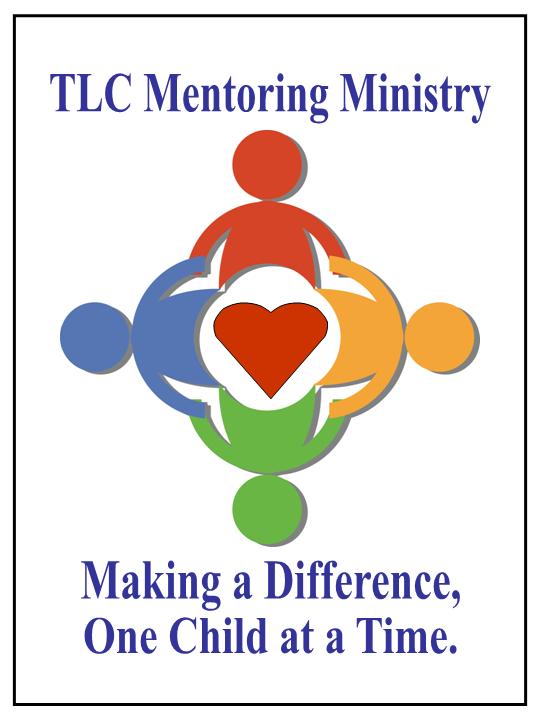 Members of Trinity Lutheran Church have been serving the children at Gates Elementary School since 2011 through its TLC Mentoring Ministry. The ministry began with nine men mentoring boys from Gates. Since 2011 the ministry has grown and dozens of children have been mentored. The TLC Mentoring Ministry Program is based on being a positive role model and close friend to
Members of Trinity Lutheran Church have been serving the children at Gates Elementary School since 2011 through its TLC Mentoring Ministry. The ministry began with nine men mentoring boys from Gates. Since 2011 the ministry has grown and dozens of children have been mentored. The TLC Mentoring Ministry Program is based on being a positive role model and close friend toa student who really needs this. As a result of one-on-one mentoring, we have seen improvements in self-esteem, behavior in school and motivation toward school as well. Mentors spend one hour, once a week with their protege or mentee. The time is spent helping with homework, talking about events in the student’s life, playing a board game, and even bouncing on a trampoline in the school’s gym.
The following are testimonials that some of our mentors shared from their experience (children’s names have been removed to protect their privacy). Please feel free to contact them if you have further questions.
“What an incredible experience. This year mentoring a child has been so rewarding. Seeing that super big grin every week makes me so glad I accepted Pastor’s offer to mentor. He is a delight – even on his “off” weeks where his attention is not where it should be. His excitement each week when we meet tells me we have connected. Positive role models in his life are few, so I hope I can help fill that void and make a difference in this little boy’s life. The moment I knew we had fully connected came several weeks ago. Occasionally I will walk the loop inside the school with him before we sit down to work. We just chat about his week, how school is going and how things are at home. The “Ah Ha” moment came when we were walking, and he reached up and held my hand. Firmly. Didn’t let go the entire walk. Every kid he saw in the hall he would proudly, loudly, and with a huge grin, tell them, “This is my mentor!”
–David Campbell
“This mentoring program to me is a successful journey that must continue on both for the child and for the adult. The program allows a child to be in a non-threatening environment and an outlet for the child to get things off their mind. It allows them to just be them. As an adult in the program, it allows us to bring many good life situations to the child and make good impressions on them. It also allows us to see how fortunate we are in our life and try to make a difference in theirs. An hour a week doesn’t seem much, but little steps can bring big results. I see progress in the child. I know he goes backwards, but home life might have something to do with these children. It’s a win/win for child and adult. We must continue on. The results will be tremendous.”
–Bob Beckelic
“Mentoring was a wonderful experience. I enjoyed it. I learned something about myself and about the child. Some days things went better than others, but over all a good experience. It was a worthwhile program.”
–Jim Sieb
“This program reinforces my appreciation of teachers. My mentee has ADHD, and I can see how a child like this needs one on one attention. Since we have had only 5 times together it is hard to tell of any benefits yet. What I have learned about my mentee is that she likes to be in control and be the teacher. So far, during my time with her, she recreates a classroom and likes to teach me things. She does not seem interested in sharing any personal or family experience at this point, but she may open up more as I get to know her more.”
–Sharon Duetsch
“I have found the Gates Boys Mentoring Program to be very beneficial to my mentee. I approach this from a standpoint that the young man needs a role model and a friend to talk about the issues he faces, and I then try to give advice. We mostly play games, or build paper airplanes, etc. but during that time he usually will open up and tell me what is going on at home or sch ool and I just listen, and then I try to give him advice based on similar situations I have experienced. I have seen a definite improvement in how he reacts to situations he is faced with at home both at home and at school. I have spent much time talking to him about how it takes more courage to walk away from a confrontation, than to simply fight back, and that a real man sets an example for students around him, or for his younger siblings. And in the last few weeks I have been proud to have him tell me about such occurrences when he was being teased or confronted and he “did nothing.” I think this will serve him well in his future.”
ool and I just listen, and then I try to give him advice based on similar situations I have experienced. I have seen a definite improvement in how he reacts to situations he is faced with at home both at home and at school. I have spent much time talking to him about how it takes more courage to walk away from a confrontation, than to simply fight back, and that a real man sets an example for students around him, or for his younger siblings. And in the last few weeks I have been proud to have him tell me about such occurrences when he was being teased or confronted and he “did nothing.” I think this will serve him well in his future.”
–Casey Anger
“First, I would like to say that the mentoring is a great idea. It not only is good for the student, but also for the mentor. The child has behavioral problems. He is a good kid, but he can’t control his emotions, and acts out in class. His mother lives in New York which bothers him, I believe. He talks about going to New York this summer. I believe he needs some form of
meds to help him out. He even talks about this himself. He is good at math but hates to read. He has many stories about home that are hard to believe. I think a lot of contact with his father and stepmom is important to discover which stories are real.”
–Jim Weeden
“Mentoring has been a challenge, especially since I have 2 students. They have had a tough year in learning and I have attempted to ease their blocks in learning. They have no support at home or help with their homework, so I try to help them catch up on some of that. One child has improved a little in reading and math. The other child does not seem to care if he does anything or not.
I had a break through about 6 weeks ago when they started to draw pictures for me. It was a really good feeling for me, and they felt proud of what they did.”
–Tom Schmidt
